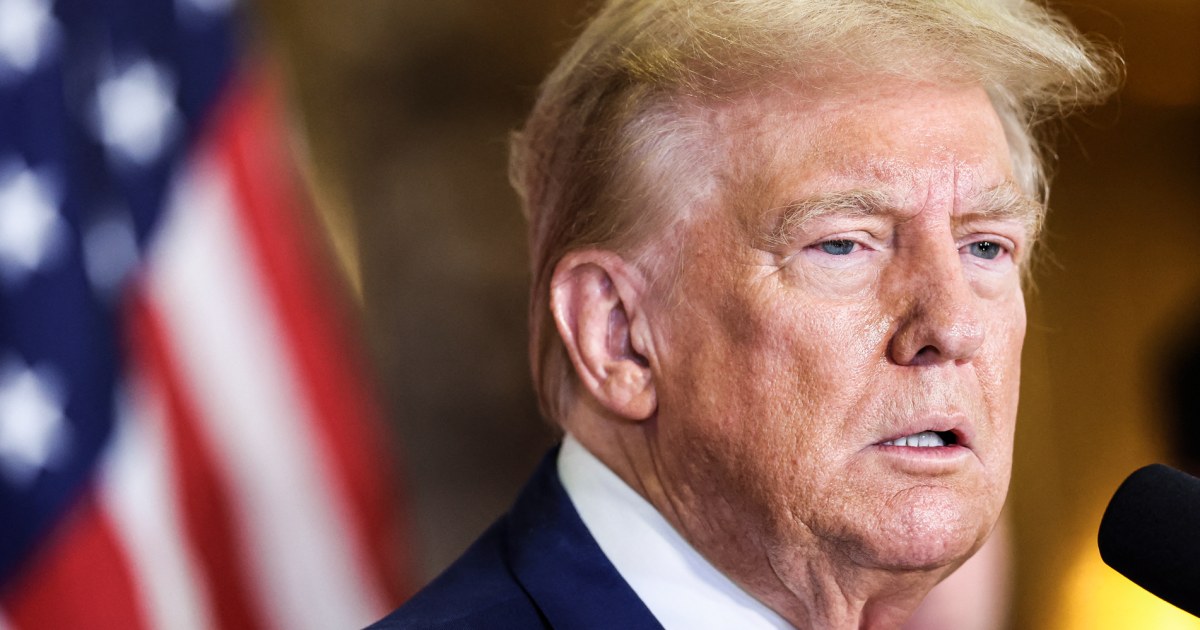Fitness
Opinion | I’ve never treated Trump as a patient. Here’s why his behavior worries me from afar.

Republican presidential nominee Donald Trump’s recent public appearances have been marked by his apparent confusion, by rambling speeches and by his bizarre claims that go beyond mere gaffes or misstatements. In one particularly troubling incident during a town hall event, Trump vividly described what he said was the audience’s reactions to the debate he had against Vice President Kamala Harris. There was no audience when Trump debated Harris.
As a physician, admittedly one who hasn’t examined Trump or observed him in person, I find myself increasingly concerned about his cognitive fitness. While age-related decline is a reality millions of Americans must confront, his recent appearances and the questionable credibility of reports made by his treating physicians should make us all concerned.
Trump vividly described what he said was the audience’s reactions to the debate he had against Vice President Kamala Harris. There was no audience when Trump debated Harris.
In a previous piece focused on President Joe Biden after his poor debate performance against Trump, I discussed the challenge of addressing cognitive decline in our leaders without trafficking in ageist stereotypes. That remains a challenge but, in part because Trump has not released a detailed medical report as presidential candidates typically do, we must raise questions about his mental state and his decision-making abilities.
The red flags include Trump’s language — not just his characteristic falsehoods and misinformation — but also clinically concerning changes. An analysis by several experts found that over the last decade, Trump has used shorter sentences, gone on more tangents, engaged in more repetition, and increasingly confused words and phrases. Those experts suggested these changes could indicate the beginning stages of cognitive decline, potentially dementia, a risk we know he is predisposed to given both his age and a direct family history. Trump’s father, Fred Trump, was diagnosed with dementia. While this doesn’t mean his son will develop the same condition, it does increase his risk and it underscores the importance of a thorough cognitive evaluation, the results of which should be made public to voters.
Vice President Kamala Harris recently released her comprehensive medical records. Her physician, Dr. Joshua Simmons, provided a detailed overview of her health, including specific information about her medical history, her current medications and preventive health measures. This level of transparency should be the standard for all candidates seeking the presidency.
Trump’s last thorough medical exam that we know of was conducted by then-White House physician Dr. Ronny Jackson in 2018. It was the first physical he released when he was president. The exam was still filled with inappropriate hyperbole, that the president was “very sharp” and that he was “absolutely … fit for duty,” not just for the remainder of the term, but also for another four years if he was re-elected.
Since that time, we don’t know that he’s had a single thorough exam similar to those that President Joe Biden and Harris have had. (They’ve made the results of their exams public.) In contrast, Drs. Jackson and Bruce Aronwold, who’ve examined Trump, have released results of physical exams that are only sparse narrative paragraphs and lack any detail.
In any other medical setting, their reports would be rejected as inadequate documentation. “His physical exams were well within the normal range and his cognitive exams were exceptional,” Dr. Aronwold notes, with no details. The vice president’s physical, by contrast, notes a series of details around vitals, lab values and specifics that are common in a detailed physical. Dr. Jackson’s history of questionable medical assessments casts a shadow over the validity of Trump’s health report.
Cognitive decline and mental impairment affect not just the individual, but they also manifest in an entire household. If Trump is on the decline, as his struggles during public appearances suggest he is, then it likely means that members of his family are experiencing the “downward spiral of silence” that is often seen in spouses and caregivers. To be clear, the former first family is like no other, with more resources and higher degrees of access to assistance. Yet, the silence to intervene, especially lately, is deafening.
Dr. Jackson’s history of questionable medical assessments casts a shadow over the validity of Trump’s health report.
It’s crucial to emphasize that these concerns are not partisan in nature. A June 2024 News/YouGov survey found that approximately 25% of American voters express doubts that either Biden or Trump was mentally and cognitively fit enough for the presidency. Biden withdrew from the race but Trump has not even acknowledged calls for further evaluation. Instead, he’s said that it’s Harris who needs to take a cognitive test. Harris, who turned 60 Sunday, hasn’t shown any signs that she has any cognitive difficulties.
As we approach another election, it’s imperative that we prioritize transparency and accountability in all aspects of candidate evaluation, including health assessments. The American people deserve leaders who are not only ideologically aligned with their values, but also physically and mentally capable of handling the rigors of the presidency.
While we must be cautious not to perpetuate ageist stereotypes, we cannot ignore that Trump, who would be the oldest president in American history, is exhibiting such worrisome signs. The presidency is not just any job — it requires sharp mental acuity, sound judgment and the ability to process complex information quickly. Trump’s behavior and the lack of credible information about his health, including his cognitive health, are deeply worrisome.
In the interest of democracy and of national security, we need all presidential candidates to commit to transparent, comprehensive, independent cognitive assessments conducted by respected medical professionals with no political affiliations. Only then can we make truly informed decisions about who’s best to lead our nation.










